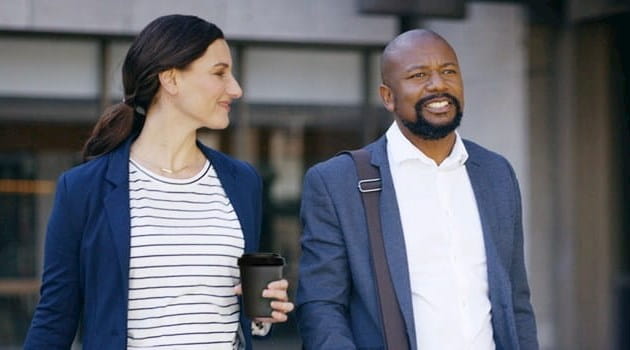The idea to totally reset the global financial architecture hit Steve Waygood, Aviva Investors Chief Responsible Investment Officer, at the launch of 'Business Declares' at Chartered Accountants Hall in November 2019.
Skip forward two years and Waygood is leading a cohort of 40 businesses, including ICAEW, to petition the COP26 gathering with a plea to change how global finance is structured.
The plan is the International Platform for Climate Finance (IPCF). The 40 firms involved in the project are asking the governments to consider the idea; they are not yet launching the solution.
“As an idea it is huge: we are asking COP and world governments to completely redesign the global financial infrastructure,” says Waygood. “The infrastructure is not well-documented and it has evolved in a piecemeal approach; there is no architect,” he explains.
Repurposing the system
The many layers of the financial world, from firms; banks; insurers; asset managers and regulators; to central banking bodies and standard bearers, have developed organically over time to make money, but often at the expense of the environment.
Fundamentally the international financial architecture is not aligned with the Paris Agreement; some of it undermines the Paris Agreement, including regulatory aspects of Solvency II and Basel III.
“At the moment, markets are destroying the Paris Agreement, and they need to be repurposed so they deliver it. We need to get money flowing in the right direction, and that is from rich countries into developing countries,” says Waygood.
“We need to stop money from destroying money. The way we are investing today will potentially destroy civilisation a century from now. Money will stop working as a store or exchange of value, and this is not an intelligent or prudential approach to investing.
“We want people who have a duty to maintain market integrity, its structural integrity, to see that.”
Macro stewardship
Markets need to be restructured to support the Paris Agreement – and while stewardship exists in encouraging forms across financial markets, very few are looking at what Waygood calls ‘macro-stewardship’.
“I think macro-stewardship is way more important if we are going to change the system so that incentives are aligned with the sustainable development goals (SDGs). We want there to be a macro-stewardship forum to develop ideas on how you harness markets to deliver SDGs,” he says.
One major idea suggested by the creation of the IPCF is that the Organisation for Economic Co-operation and Development (OECD), created to help rebuild the global economy after the Second World War, is repurposed to help reorganise the world economy in the face of climate change.
Reform time
Waygood sees this transformation and the agreements necessary taking up to ten years to complete, but is hopeful that a firm plan would be in place and agreed by 2023.
A challenge will be that the scope and ambition required to reorganise the global financial system could outlast most ministerial postings: civil servants tend to shy away over longer term plans because of changes in government. Whoever takes it on will need vision.
But then this restructure plan delivers just that – a plan for top-down change, and which helps deliver article 2.1c of the Paris Agreement, which is about realigning the financial system to keep warming to 1.5C.
There are encouraging signs in the political dialogue and communications about the willingness for this to happen, says Waygood.
One example is the G20 Sustainable Finance Roadmap, while although sufficiently heavily caveated to enable endorsement by the G20 finance ministers, does include some bold ideas and a promising future trajectory, he adds.
Further progress would include central banks making material changes to tell their national economies to put a price on carbon.
“Lots of financial policy and academia is missing for this, the frontier of thinking is by practitioners and policy makers, which is where we come in. I want to see carbon returns on capital employed (CROCE) become a key phrase in the new system,” he says.
Next steps
The plan needs to be heard, and governments need to work together to rebuild the system. NGOs need to get behind it, once governments build a platform based around these direct ideas, and ideally involving the developing world as much as possible.
After COP26, the plan must build and develop a multi-year strategy of reform and consensus. There will be plenty of work to do, including aligning future COPs, starting with Egypt next year, and with a plan for reassessing each year on the reform until 2030.
In the short term, Aviva Investors has produced a book on the topic titled: Against our nature. It is targeted at customers and explaining how to act as individuals with regards to climate change, but the effort is ongoing to change the dialogue. There is also a White Paper that Waygood has penned to fully voice the ideas of the cohort.
“I feel like we have helped to create a real space for this conversation, with key players changing their tune and listening to this take on the financial architecture. There is a real positive start,” he says.
COP26: acting together
Find inspiration, information and practical resources to support the goals of the UN Climate Change Conference in Glasgow and explore why it represents a critical time for the profession.



